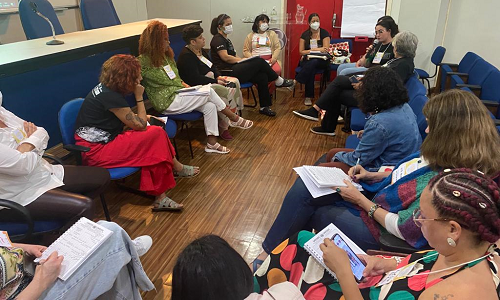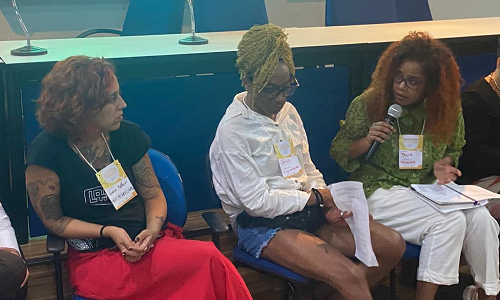
Brasília, September 29, 2022 - UNODC Brazil and the Joint United Nations Programme on HIV/AIDS (UNAIDS), supported by the Oswaldo Cruz Foundation (Fiocruz) and Brazilian Platform on Drug Policy (PBPD), gathered Latin American women leaders in Rio de Janeiro (RJ), September 26-27, to discuss and create a series of recommendations for countries to include the needs of women who use drugs for national public policies.
"Women make up 20% of the estimated number of people who use drugs worldwide. They are more vulnerable to acquiring HIV and other viral infections due to gender-based violence, stigma, and discrimination. The prevalence of gender-based violence in women who use drugs is two to five times higher than the prevalence among women who do not use drugs", says Elena Abbati, representative of UNODC Brazil.
The meeting is an extension of the National Meeting on Combined HIV Prevention and Care Lines for Women Who Use Drugs, which took place in Santos (SP), in July 2022, and brought together representatives from public management, academia and civil society, as well as international organizations and the general community.
In Brazil, according to data from the Epidemiological Bulletin for HIV/AIDS 2021, AIDS cases are prevalent in black women, as are AIDS-related deaths. In 2010, 45.4% of women who died from AIDS-related illnesses were white, a number that was reduced to 36.4% in 2020. Among black women, the reality is not the same. In 2010, 54.1% of AIDS-related deaths of women were among black women. By 2020, that number increased to nearly 63 percent.

"This increase is a sign that, although we have many achievements related to the prevention of new cases and the reduction of AIDS-related mortality in general, there is still a group of women who urgently need policies to keep them alive," concludes Claudia Velasquez, director and representative of UNAIDS in Brazil.
The National Meeting on Combined HIV Prevention and Care Lines for Women Who Use Drugs brought together representatives from Brazil (É de Lei Coexistence Center, Escola Livre de Redução de Danos, Rede Nacional de Feministas Antiproibicionistas), Uruguay (Coletivo Mizangas), Colombia (Corporación Viviendo), Argentina (Intercambios) and representatives from Honduras, Guatamela, Costa Rica and Argentina of the Latin American Network of People Who Use Drugs.